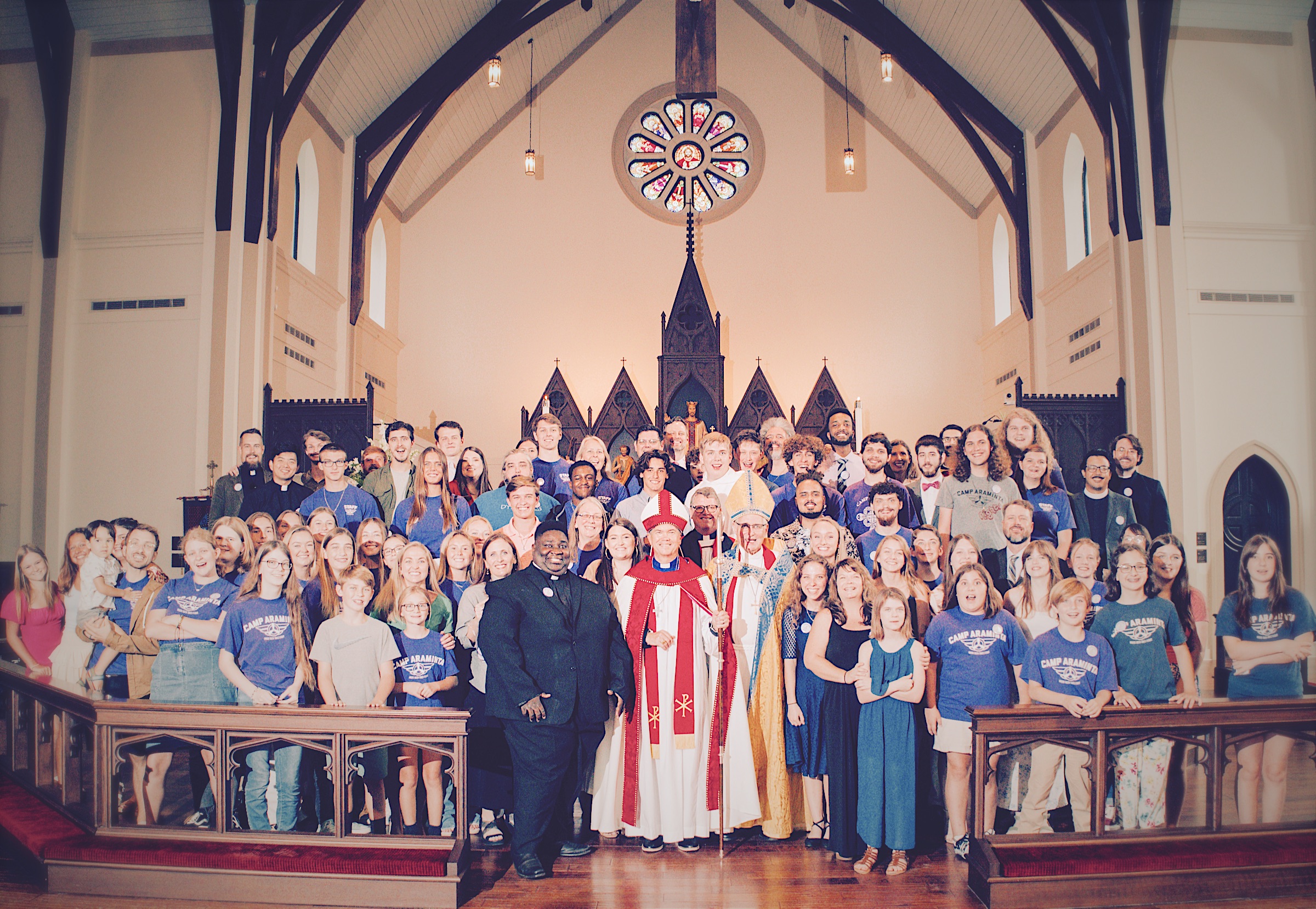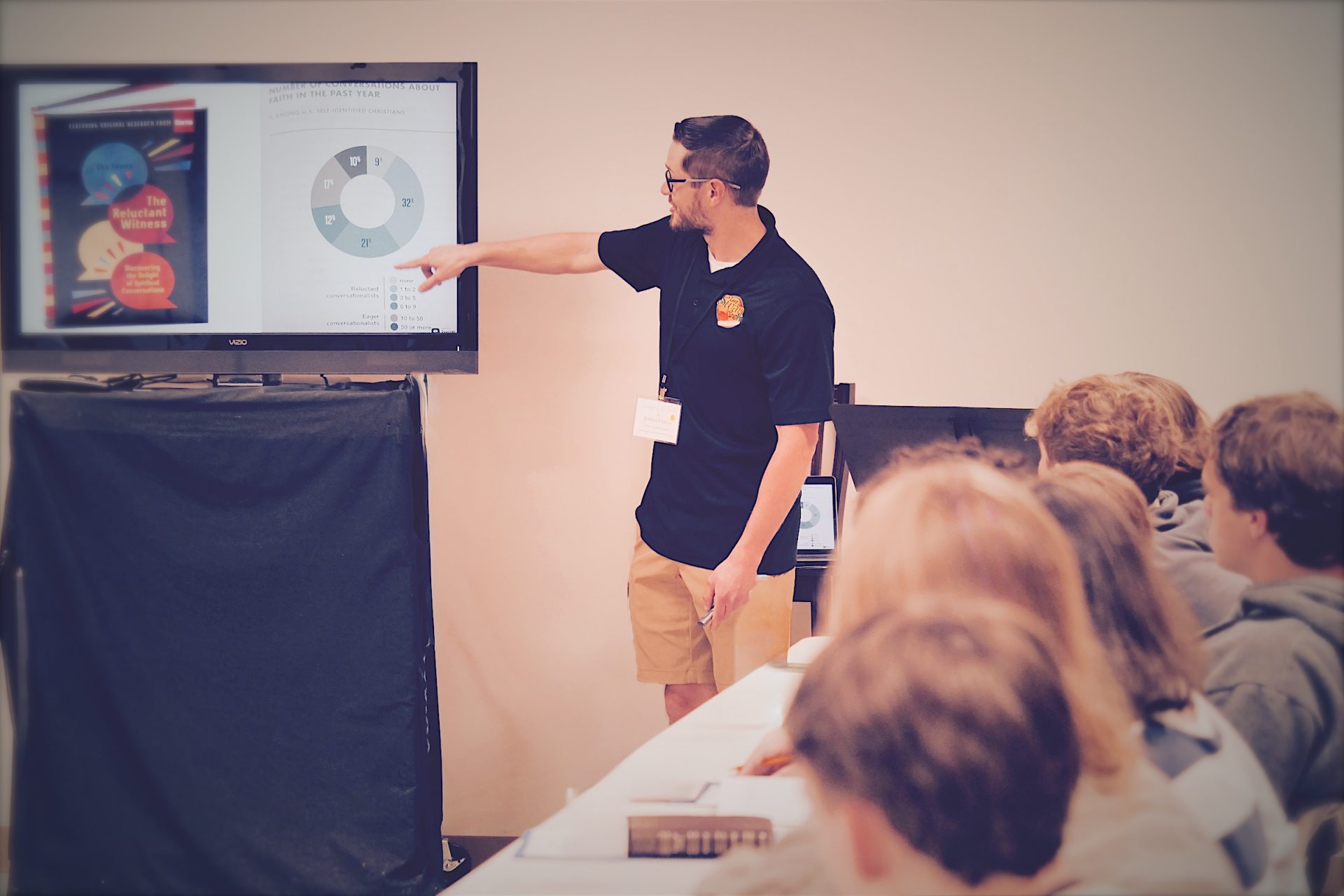Raising Up Leaders: Equipping the Next Generation for Kingdom Impact

Newsletter Contents
A Culture of Calling, Equipping, and Empowering Leaders
Integrity of Heart and Skillful Hands
Equipping Leaders for Flourishing Churches: The Charles Simeon Institute
Raising Up Leaders: Equipping the Next Generation for Kingdom Impact
Raising Up Healthy Church Planters
New Faces Around the Diocese
Equipping The Saints 2025 Wrap-Up
Other Announcements & Upcoming Events
More from Canon Christopher Jones
Healthy Communities include Intergenerational Relationships
A Call to Campus Ministry: Reaching the Next Generation
Follow Me as I Follow Christ: Stewarding our Youngest Saints
Barna: Over half of Gen Z Teens Feel Motivated to Learn More About Jesus
Winning the Next Generation to Christ
‘Brothers and sisters, choose seven men from among you who are known to be full of the Spirit and wisdom. We will turn this responsibility over to them…'” (Acts 6:2-3, NIV)
Healthy church communities don’t just nurture faith – they raise up leaders. If we truly seek to build the Kingdom of God, if we truly seek to flourish, we must be intentional about empowering the next generation to step into roles of leadership and service. From children and youth to young adults, we have an opportunity to equip and disciple future leaders who will carry the mission and message of the gospel forward.
The early church understood the importance of raising up leaders to meet the growing needs of the community. Look at what happens in the Acts of the Apostles:
So the Twelve gathered all the disciples together and said, “…Brothers and sisters, choose seven men from among you who are known to be full of the Spirit and wisdom. We will turn this responsibility over to them.”
—Acts 6:2-3
The Apostles recognized that for the mission of the church to move forward, they had to appoint new leaders in the church. There were some things that only they could do and there were other things that they could delegate: things that were important but which others could do. Notice what happens in v. 7 because of their empowerment of others: “The word of God spread; the number of disciples in Jerusalem increased rapidly.” If you want the word of God to spread then disciple, raise up, and empower young leaders to share (and eventually take on) the mantle of responsibility.

The Apostle Paul recognized this principle as well. Look at how he describes God’s way of spreading the Kingdom of God:
So Christ himself gave the apostles, the prophets, the evangelists, the pastors and teachers, to equip his people for works of service, so that the body of Christ may be built up.
—Ephesians 4:11-13
God does not call leaders to do all the work, but to equip the saints for ministry. When we invest in raising up young leaders, we strengthen the entire body of Christ and prepare the church to thrive for generations to come. Raising leaders is more than just filling roles. It’s about recognizing, nurturing, and utilizing the unique gifts that God has placed within each of us.
Paul’s relationship with Timothy serves as a excellent example of raising up young leaders. Paul saw leadership potential in Timothy and encouraged him, saying:
Don’t let anyone look down on you because you are young, but set an example for the believers in speech, in conduct, in love, in faith, and in purity.
—1 Timothy 4:12
Timothy’s leadership wasn’t defined by his age but by his faith and character. When we encourage and equip young people, we empower them to lead not just in the future but in the present.
The first step is to be intentional. Most of us took our first steps into leadership not when we first recognized our own potential, but when someone pulled it out of us. Beloved, most of you reading this article are leaders of some kind, regardless of any kind of positional status in a church or ministry. So, think about a time when someone encouraged you in the Lord or asked if you have ever considered a leadership opportunity. If we want to reach the next generation, we have to be intentional about raising up the next generation.
There are multiple ways to encourage this practically but the underlying philosophy is to create safe spaces to lead. We must provide the space for fledgling leaders to try—and often succeed, and sometimes fail. Providing a safe and supportive environment where young leaders can practice and grow builds their confidence and resilience. It demonstrates trust, and it implicitly teaches the wider community about the proper place of youth as leaders.
Introducing Anglican Campus Fellowship
This is exactly what we’re attempting to do through the Gulf Atlantic Diocese’s Anglican Campus Fellowship (ACF). In the Fall of 2024, we started ACF on the campus of the University of North Florida. Though the ministry started at UNF, it also serves students from Florida State College at Jacksonville and we hope to continue expanding to include students from other local universities and colleges. The goal of ACF is threefold: (1) to be effective evangelists on the campus by sharing the transforming love of Jesus Christ in order that new sons and daughters would be born into God’s heavenly Kingdom; (2) to be a vehicle through which the church and the campus can bless each other as a pipeline for leadership (lay and ordained) in the church and on campus; and (3) to share our distinctly Anglican charisms with the wider community, such as scripture and tradition, liturgy, daily prayer, and community.
One of the ways we’re planning to reach students at the University of North Florida is through a leadership program designed to pair students with Christian mentors that help them develop as leaders. This program has been proven to produce fruit and we are excited to launch it first with the Anglican Christian Fellowship, and then hopefully for students across the campus. Our hope is that these mentors will be able to engage in spiritual conversations with students that naturally flow as people of all generations will feel more comfortable about talking about “the hope that is within [them].”1 By God’s grace, please join us in prayer that it does so here in Jacksonville and beyond.
When we commit to raising up leaders the impact is felt far beyond our local church. Leaders who are equipped in the church carry their faith into their workplaces, communities, and families. They become catalysts for change, models of Christlike service, and faithful witnesses in a dark world that needs the light of Christ.
Jesus said, “The harvest is plentiful, but the workers are few. Ask the Lord of the harvest, therefore, to send out workers into his harvest field.”
Matthew 9:37–38
The harvest is ready, and God is calling us to raise up leaders who will answer that call. Will you help to engage and equip the next generation of Christian leaders to live lives of courage, compassion, and conviction for the Kingdom of God? How will you invest in raising a young leader?
Please consider committing to praying for, or donating toward, our new campus fellowships as well as our various youth programs across the diocese and in our churches. If you are interested in serving as a mentor, or if you’d like to discuss planting a similar program near you, please contact me, Canon Christopher Jones, by email.
1 Peter 3:15↩
Fr. Christopher Jones is Canon for Next Generation Ministry for the Gulf Atlantic Diocese, as well as Next Gen & Youth Director for All Souls Anglican Church in Jacksonville, FL.
